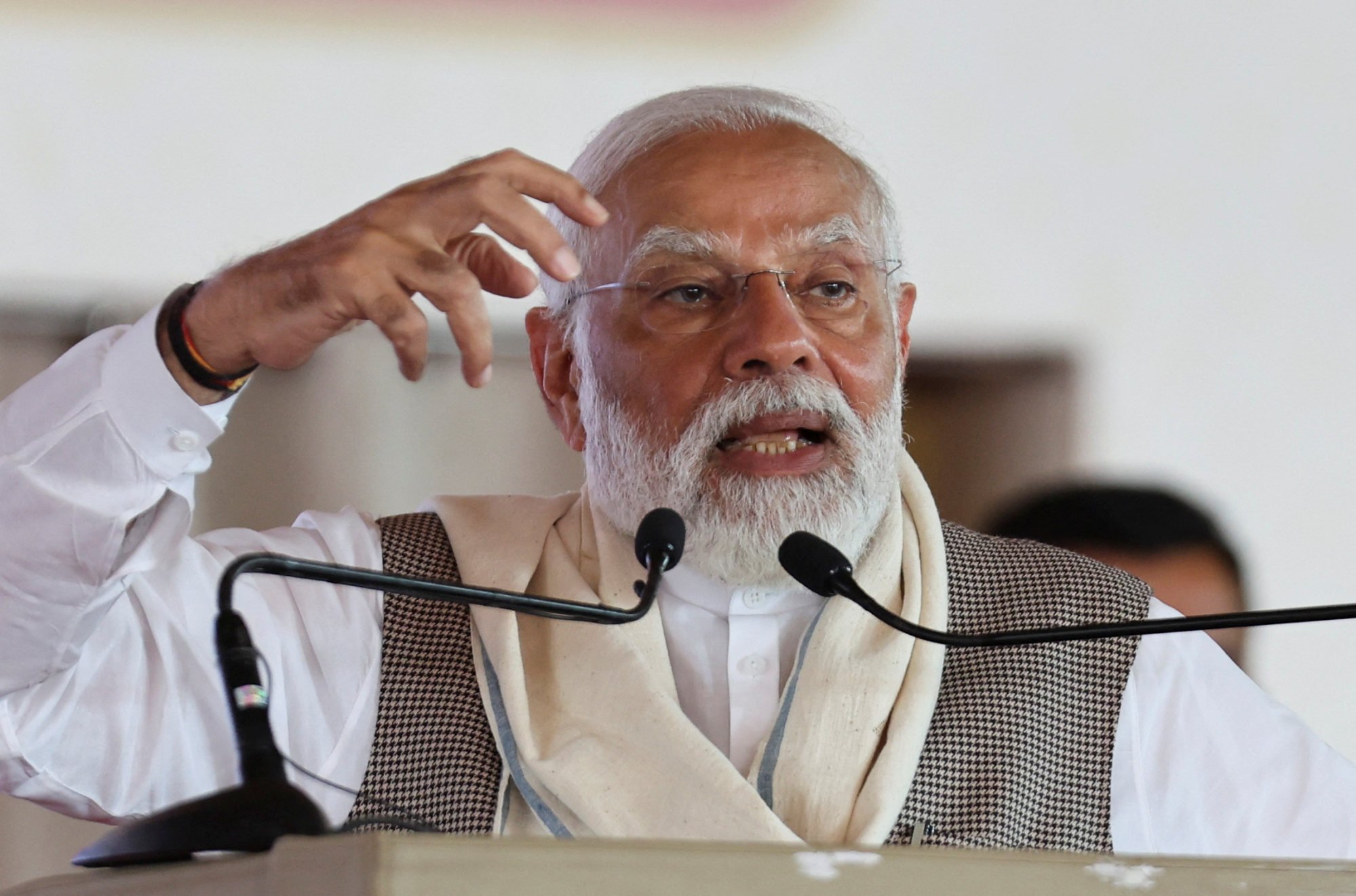“India has the advantage of geographical proximity, whether it is Sri Lanka, Nepal, Bhutan or the Maldives,” said Manoj Joshi, a distinguished fellow at the Observer Research Foundation.
“It must develop better instruments of inducement so that it is clear why it will be good [for its neighbours] to go with India.”
During the Maldivian presidential election last year, Muizzu campaigned to remove the nation’s long-standing “India First” policy. Muizzu defeated his predecessor Ibrahim Mohamed Solih, whom he accused of allowing India to hold sway over the Maldives.
Changing Delhi-Malé ‘dynamics’, troop withdrawal unlikely to affect partnership
Changing Delhi-Malé ‘dynamics’, troop withdrawal unlikely to affect partnership
Maldivian ministers Malsha Shareef, Mariyam Shiuna and Abdulla Mahzoom Majid had called Modi a “clown”, “terrorist” and “puppet of Israel”, respectively, over India’s support of Israel in the Israel-Gaza war and were suspended from their positions.
Muizzu’s demand for the withdrawal of Indian troops had further aggravated bilateral tensions.

New Delhi considers the Indian Ocean archipelago to be within its sphere of influence, with the Maldives situated along key shipping routes.
China’s growing presence in the Indian Ocean and its influence in the Maldives as well as in neighbouring Sri Lanka have stoked India’s suspicions about the security threat posed by Beijing.
Analysts say India’s ruling Hindu nationalist Bharatiya Janata Party has provoked suspicions in Muslim-majority Maldives.
“Modi’s radicalisation of Indian religious politics is bound to be viewed dimly by the Maldives, a country where non-Muslims are prohibited from becoming citizens,” said Sweden-based Matias Otero Johansson, an independent political analyst.
Maldives orders Indian troops to leave as row escalates after tourism boycott
Maldives orders Indian troops to leave as row escalates after tourism boycott
Muizzu’s “India out” campaign has played on local concerns that India’s military presence undermined Maldivian sovereignty, he added.
“In seeking to balance Indian and US influence, China is a natural counterbalancing force which has long attempted to extend its influence along critical maritime trade routes that supply the PRC with resources,” Johansson said.
“It is in this sense a timely opportunism by Beijing given the fallout of the India-Maldives relationship.”
China’s gambit
India’s 90 security personnel stationed in the Maldives had been mostly involved in rescue and relief operations.
However, their presence became the lightning rod for the country to downgrade ties with India and draw closer to China.
“There is hardly anything to suggest that the Modi government has not been supportive of the Maldives,” said Harsh Pant, an international relations professor at King’s College London.

“The Maldives President has complained about Indian troops’ minimal presence undermining sovereignty but has had no compunctions about signing an opaque defence pact with China,” he added.
“It seems Muizzu has taken a cue from China and that is why many Maldivians are worried about it.”
The Maldives’ opposition is led by the Maldivian Democratic Party (MDP), which was in power previously under Solih and had maintained strong ties with India.
MDP and other opposition parties recently issued a joint statement to criticise the ruling Progressive Party of Maldives’ anti-India stance.
Muizzu’s pro-China stance, however, could hurt the Maldives’ ties with the US and UK since India is seen as a Western ally, according to Pant.
Can India forge a 3-way Indo-Pacific partnership with Japan and South Korea?
Can India forge a 3-way Indo-Pacific partnership with Japan and South Korea?
For now, it is difficult to assess the impact on China’s strategic interests in the region from the fallout between India and the Maldives.
“It’s too early to say yet if the defence agreement [with China] will introduce changes of substance to the security environment, namely if China will be allowed to militarise Maldivian territory,” Johansson said.
Such a development, however, would run contrary to Muizzu’s election campaign against foreign influence, he added.
Given the evolving strategic situation, Delhi should therefore step up efforts to realign its priorities in the Maldives, according to Johansson.
“Above all India should extend an olive branch and attempt to mend trust with its neighbour, giving the Maldives the means to counterbalance China’s influence.”
Source: scmp.com



